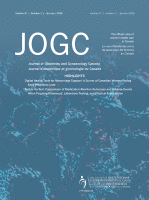
Community engagement
In order for our digital tools to be meaningful and impactful, we believe in spending time with our intended users and their communities to hear the gaps they identify in accessing safe, up-to-date, and reliable sexual and reproductive health (SRH) tools and services.

Multidisciplinary collaboration
We are a diverse global multi-disciplinary team of women’s health experts, medical professionals, SRH activists, public health and technology specialists, dedicated to applying our expertise and skills to enhance our co-creation process. We believe in collaborating with all SRH-related organizations working on the ground to ensure our work is inclusive, is not redundant and is complimenting their existing work.
In the Field, backed by Science
The Vitala Global Co-Founders have various clinical and managerial experiences in the provision of essential SRH services for women and girls in challenging settings, including working in remote communities in Canada, in Northern Nigeria during jihadist insurgencies, in Yemen during the COVID19 pandemic, and in Lebanon with Syrian refugees and other vulnerable populations affected by the protracted Syrian crisis.
We also work with the World Health Organization (WHO) Preventing Unsafe Abortion Unit to provide technical expertise on the development of evidence-based global guidelines. Examples include involvement as WHO Secretariat to the WHO Medical Management of Abortion guideline and WHO Ebola in Pregnancy guideline, current involvement in the ongoing update of the WHO Safe Abortion technical guidance 3rd edition, and facilitation of the approval of mifepristone and misprostol on the core WHO Essential Medicines List.

“Every woman and girl should have access to SRH tools and services regardless of their socioeconomic situation, religion, culture, beliefs, political context, and geographic location.”
Research publications
Breanna Flynn, Megan Gomes, Genevieve Tam, Roopan Gill (2025). Digital Health Tools for Miscarriage Support: A Survey of Canadian Women Facing Early Pregnancy Loss. Journal of Obstetrics and Gynaecology Canada, Volume 47, Issue 1, 2025.
Cleverley K, Sergeant A, Zamberlin N, Medina S, Tam G and Gill R (2024). Aya Contigo: evaluation of a digital intervention to support self-managed medication abortion in Venezuela. Front. Glob. Womens Health 5:1401779. doi: 10.3389/fgwh.2024.1401779
Gill R, Ogilvie G, Norman W, Fitzsimmons B, Maher C, Renner R (2024). Feasibility and Acceptability of a Mobile Technology Intervention to Support Postabortion Care After Surgical Abortion (the FACTS Study Phase 3): Mixed Methods Prospective Pilot Study. JMIR Form Res 2024;8:e46284
Luigi-Bravo, G., Maria Ramirez, A., Gerdts, C., & Gill, R. (2023). Lessons learned from developing and implementing digital health tools for self-managed abortion and sexual and reproductive healthcare in Canada, the United States, and Venezuela. Sexual and Reproductive Health Matters, 31(4). https://doi.org/10.1080/26410397.2023.2266305
Stifani, B. M., Luigi, G., Tam, G., Zamberlin, N., Carino, G., Medina-Salas, S., Fetters, T., & Gill, R. (2023). Contraception and abortion in times of crisis: results from an online survey of Venezuelan women. Frontiers in global women's health, 4, 1189706. https://doi.org/10.3389/fgwh.2023.118970
Bohren, M. A., Iyer, A., Barros, A. J. D., Williams, C. R., Hazfiarini, A., Arroyave, L., Filippi, V., Chamberlain, C., Kabakian‐Khasholian, T., Mayra, K., Gill, R., Vogel, J. P., Chou, D., George, A., & Oladapo, O. T. (2023). Towards a better tomorrow: addressing intersectional gender power relations to eradicate inequities in maternal health. Lancet Series: Maternal health in the perinatal period and beyond Paper #4. EClinicalMedicine, 102180. doi:10.1016/j.eclinm.2023.102180
Stifani BM, Peters M, French K, Gill RK (2023) There’s an App for it: A systematic review of mobile apps providing information about abortion using a revised MARS scale. PLOS Digit Health 2(7): e0000277. https://doi.org/10.1371/journal.pdig.0000277
Luigi-Bravo, G., & Gill, R. K. (2022). Safe abortion within the Venezuelan complex humanitarian emergency: understanding context as key to identifying the potential for digital self-care tools in expanding access. Sexual and Reproductive Health Matters, 29(3). https://doi.org/10.1080/26410397.2022.2067104
Roopan K. Gill, Amanda Cleeve & Antonella F. Lavelanet (2021). Abortion hotlines around the world: a mixed-methods systematic and descriptive review, Sexual and Reproductive Health Matters, 29:1,
Gill R, Ganatra B, Althabe F. WHO essential medicines for reproductive health. BMJ Glob Health. 2019;4(6):e002150. Published 2019 Dec 17.
Gill RK, Ogilvie G, Norman WV, Fitzsimmons B, Maher C, Renner R. Feasibility and Acceptability of a Mobile Technology Intervention to Support Postabortion Care (The FACTS Study Phase II) After Surgical Abortion: User-Centered Design. JMIR Hum Factors. 2019;6(4):e14558. Published 2019 Oct 10. doi:10.2196/14558
Gill R, Ogilvie G, Norman WV, Fitzsimmons B, Maher C, Renner R. Feasibility and Acceptability of a Mobile Technology Intervention to Support Postabortion Care in British Columbia: Phase I. J Med Internet Res. 2019;21(5):e13387. Published 2019 May 29. doi:10.2196/13387
Gill R, Norman WV. Telemedicine and medical abortion: dispelling safety myths, with facts. Mhealth. 2018;4:3. Published 2018 Feb 1. doi:10.21037/mhealth.2018.01.01
Gill R, Black A, Dumont T, Fleming N. Photovoice: A Strategy to Better Understand the Reproductive and Sexual Health Needs of Young Mothers. J Pediatr Adolesc Gynecol. 2016;29(5):467-475. doi:10.1016/j.jpag.2016.03.001
Faught W, Gill R, Ng-Kamstra J. Women's Health and Surgical Care: Moving From Maternal Health to Comprehensive Surgical Systems. J Obstet Gynaecol Can. 2015;37(10):894-896. doi:10.1016/s1701-2163(16)30024-x
Gill R, Stewart DE. Relevance of gender-sensitive policies and general health indicators to compare the status of South Asian women's health. Womens Health Issues. 2011;21(1):12-18. doi:10.1016/j.whi.2010.10.003







